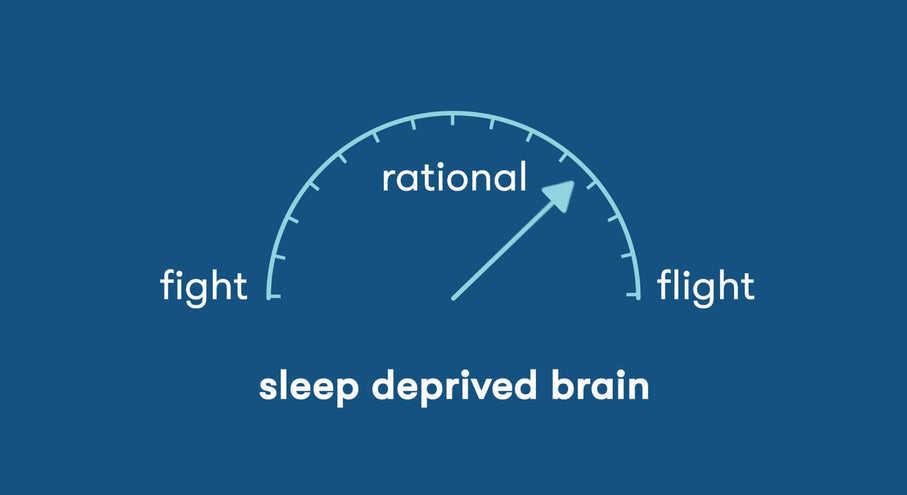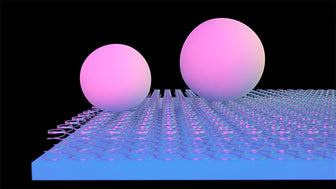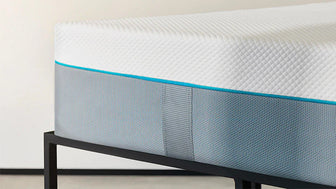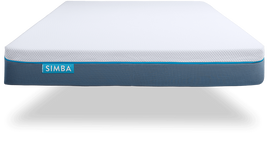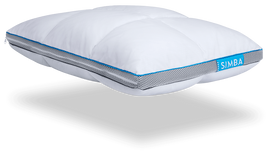The psychological effects of sleep deprivation
We’ve all been there. Some mornings — and afternoons, and evenings — there’s simply no way to deal with people. Especially if the night before was far from being a dream.
But why is it that sleeping badly makes us so inclined to be grumpy and uncooperative? Experts reckon it all comes down to a part of the brain that’s been with us since the days when we were watching out for saber-toothed tigers rather than squaring off with Sarah in accounts.
Psychological symptoms of sleep deprivation
Sleep deprivation can affect our bodies in countless ways, from giving us bags under our eyes to making us crave sugary and fatty foods. But what should we look out for when it comes to mood?
- You’re more overwhelmed by minor obstacles (and might lose your temper or cry more easily when you face them).
- You pick arguments with people close to you, or respond more negatively to what they say.
- You feel more anxious.
- You feel ‘down’ far more often than usual.
One of the tricks that sleep deprivation plays on our mood is that we don’t usually realize our tiredness is to blame. We tend to blame our irritability or sadness on external factors instead. While external factors usually trigger our bad mood, the reason we’re so easily triggered is because our brains aren’t coping as well - and that problem starts in the bedroom.
Why sleep deprivation affects our mood
The part of our brain that deals with our primal, instinctive emotions — the bit some people call our ‘chimp brain’ — is called the limbic system. In it are two small oval areas that get their name from the Greek for almond, because of their shape. Together, they’re known as the amygdala.
The amygdala is the bit that reacts emotionally to generate a fight, flight or freeze response when we’re threatened. The problem is, it has no way of knowing if it's dealing with a real, life-threatening problem or a minor irritation. And when it’s on high alert — such as when you haven’t slept properly — it’s primed to make a mountain out of any number of molehills. That’s why we can have such strong psychological responses to being tired.
In fact, one study found that after just one night of disturbed sleep, people who were exposed to negative imagery had an amygdala that lit up on a brain scan. In fact, the amygdala was up to 60% more active in their brains, than in the brains of people who got a full night’s sleep. Sleep better, and you let your prefrontal cortex (the rational bit) take the wheel and sort the drama from the crisis.
Combatting bad moods caused by tiredness
It won’t be a surprise that the best way to combat bad moods caused by sleep deprivation is to, well - sleep more. But we know that’s easier said than done. So what can you do to help your brain get the rest it needs to tackle the day?
Skip the caffeine
When we feel tired and irritable, it’s tempting to hit the coffee. After all, it’s a great way to give us some short-term alertness, especially if we feel overworked. The thing is, caffeine doesn’t doesn’t actually make us feel less tired; it just makes us more alert (i.e. more likely to respond to external stimuli). The result? Your body wants you to drop off, but you’re too busy jumping at unexpected noises.
If you really need a caffeine hit in the morning or early afternoon, go for it - whatever gets you through the day. But skip that post-lunch trip to Starbucks in case it makes it even harder to sleep tonight.
Take some time out
When we’re tired and irritable, it’s easy to think that the best way to cope is by ploughing on. But if you can, schedule some much-needed time out. Skip those drinks after work or that late-night cinema trip. The psychological effects of constant tiredness make us less able to cope with things like socializing, and continuing as though nothing’s wrong when we really want to sleep can just make things worse. It’s fine to say ‘no’ sometimes - and it’s better for everyone in the long run.
Work on your sleep hygiene
Have you ever collapsed into bed, feeling totally exhausted, and realized you still can’t sleep? It’s very common, and it can be caused by a number of things - but the biggest culprit is poor sleep hygiene.
Sleep hygiene is what puts us in a great position to drop off, and it involves everything from setting a routine to calming down before we hit the pillow. In fact, it’s so important we’ve written a whole article about it.
How to find out if you’re getting enough sleep
If you’ve experienced any of the symptoms above, from irritability to the general blues, think about your general sleeping habits. When’s the last time you had a great night? If it was a while ago - or you just don’t get the shuteye you want often enough - it’s likely that lack of sleep (or poor quality sleep) is to blame.
Another way to find out whether you might be giving your amygdala something to shout about is to track your sleep. You can then match up better and worse nights to the way you feel and respond to others the next day, which in turn might inspire you to make more sleep-friendly choices during your days.
Sweet dreams!
